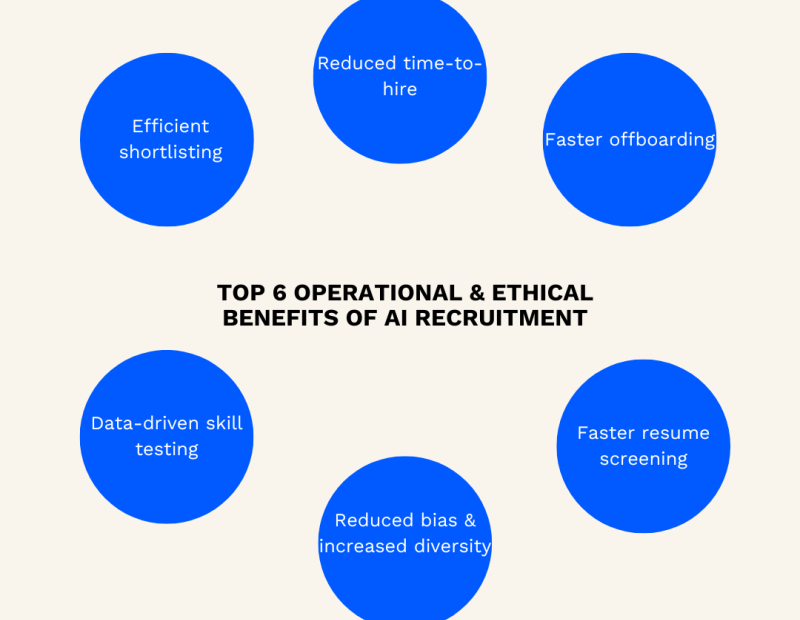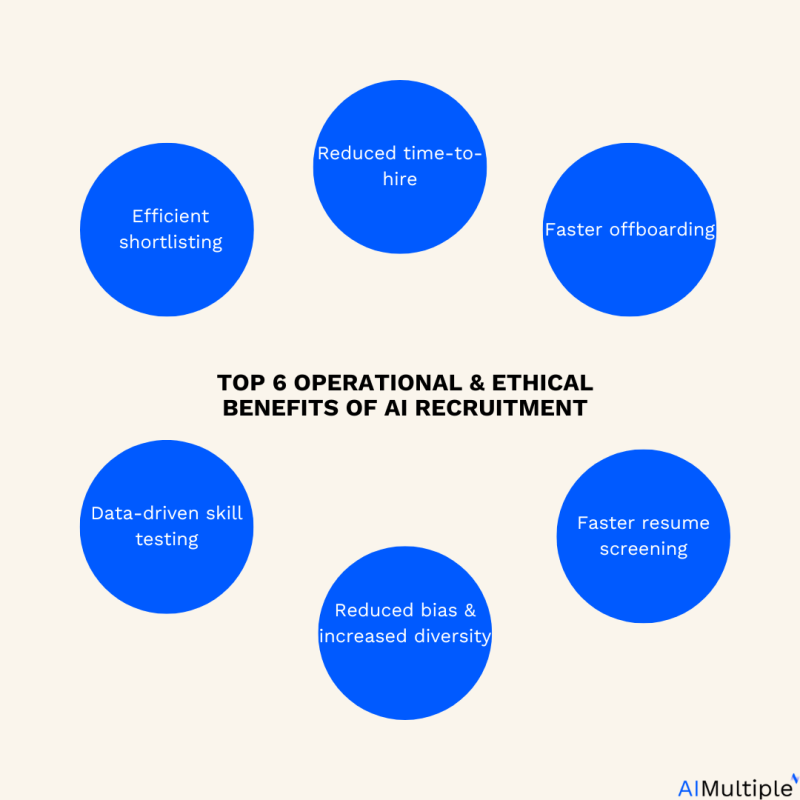The traditional recruiting process is laden with inefficiencies. Manually screening resumes is tedious and time-consuming, with recruiters spending over 20 hours on average reviewing a single resume. This delays hiring and costs companies in lost productivity. Worse, unconscious biases creep in, with one study showing resumes with "white" names Receiving 50% more callbacks than the same resumes with "Black" names.
Enter AI recruitment. Powered by natural language processing (NLP), machine learning, and other innovative technologies, AI recruitment streamlines repetitive tasks, reduces bias, and improves hiring outcomes. In this post, we‘ll explore six key ways AI and automation benefit recruiting.
AI Makes Resume Screening Faster and More Accurate
Tired of squinting at tiny font to extract resume details? AI comes to the rescue!
NLP algorithms can read and digest resumes in seconds, auto-populating candidate profiles with skills, titles, and experience. This reduces screening time significantly.
For example, at Unilever, reviewing 1.8 million applications manually took massive resources. By implementing AI recruiting platforms, they reduced time-per-hire by over 70,000 hours!
AI doesn‘t just work faster – it‘s more accurate. Machine learning algorithms can be trained to extract key information without error. This results in complete and consistent candidate data.
Shortlisting the Right Candidates Becomes Faster, Fairer
Manually shortlisting candidates from hundreds of applicants is draining.
AI recruiting platforms instantly filter candidates who lack required skills or experience based on pre-defined criteria. This shrinks the pool to only qualified applicants.
Not only that, AI can rank candidates based on qualifications, experience level, culture fit and more. This enables more nuanced, data-driven shortlisting.
For instance, ideal candidates could be ordered from Level 1 (meets minimum requirements) to Level 3 (exceeds expectations). This gives recruiters a prioritized shortlist.
By removing manual selection bias, AI allows all candidates an equal, fair chance of consideration.
AI Accelerates Onboarding and Offboarding
According to HR think tank i4cp, poor onboarding means 1 in 3 employees look for a new job within their first 90 days.
AI automation streamlines onboarding tasks like:
- Documentation completion
- Training and certification
- System access and equipment setup
- Company policy acknowledgment
This ensures a smooth transition for new hires while freeing up HR. Offboarding tasks like payroll and system deactivation are also accelerated.
AI Enables Unbiased, Skills-Based Assessments
Traditional job interviews have inherent biases. Recruiters may unconsciously favor candidates that remind them of themselves.
AI recruiting tools create bias-free skills assessments using generated test questions tailored to the role. Candidates are objectively scored on ability rather than likeability.
For example, AI might assess software developer applicants by automatically generating a coding screen to test their skills. This provides an egalitarian way to evaluate candidates.
AI Recruiting Mitigates Biases and Drives Diversity
Diversity initiatives often fail because of ongoing unconscious bias in hiring.
AI recruiting helps in 3 key ways:
- Blind screening anonymizes candidates to eliminate selection bias.
- Job posts are screened by AI to remove biased language and broaden applicant pools.
- Voice and video analytics by AI assess candidate traits objectively.
The result? A 294% increase in underrepresented groups among new hires, according to Cigna.
Unilever Case Study: 70,000 Hours Saved Through Automation
Global CPG giant Unilever receives over 1.8 million job applications annually. Manually screening these was a massive undertaking.
By adopting AI recruiting platforms, Unilever automated tasks like:
- Initial resume screening
- Video interviews analyzed by AI
- Online assessments to test skills and traits
- Reducing biases through blind screening
This resulted in significant time savings – over 70,000 recruiting hours freed up in the first year. Hiring managers could focus on more strategic work. Meanwhile, candidates got faster response times and a more positive experience.
Start Your AI Recruiting Journey
This post explored six ways AI and automation enhance recruiting – from efficient screening to unbiased assessments.
To recap, AI recruitment:
- Saves 20+ hours per resume through automated screening
- Creates bias-free shortlists and candidate rankings
- Speeds onboarding/offboarding by up to 30%
- Enables skills-based assessments over interviews
- Mitigates unconscious bias and improves diversity
- Frees up thousands of hours through task automation
To learn more about implementing AI recruiting at your organization, visit our AI Vendor Hub at marketingscoop.com to explore leading solutions. The future of recruiting is AI-powered.

